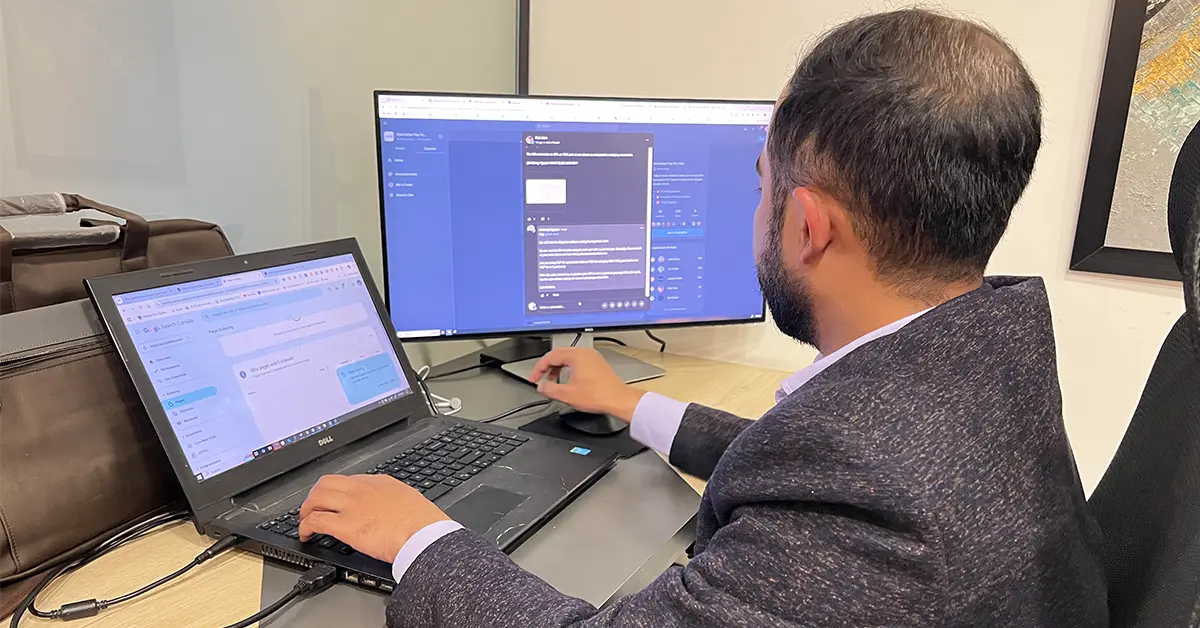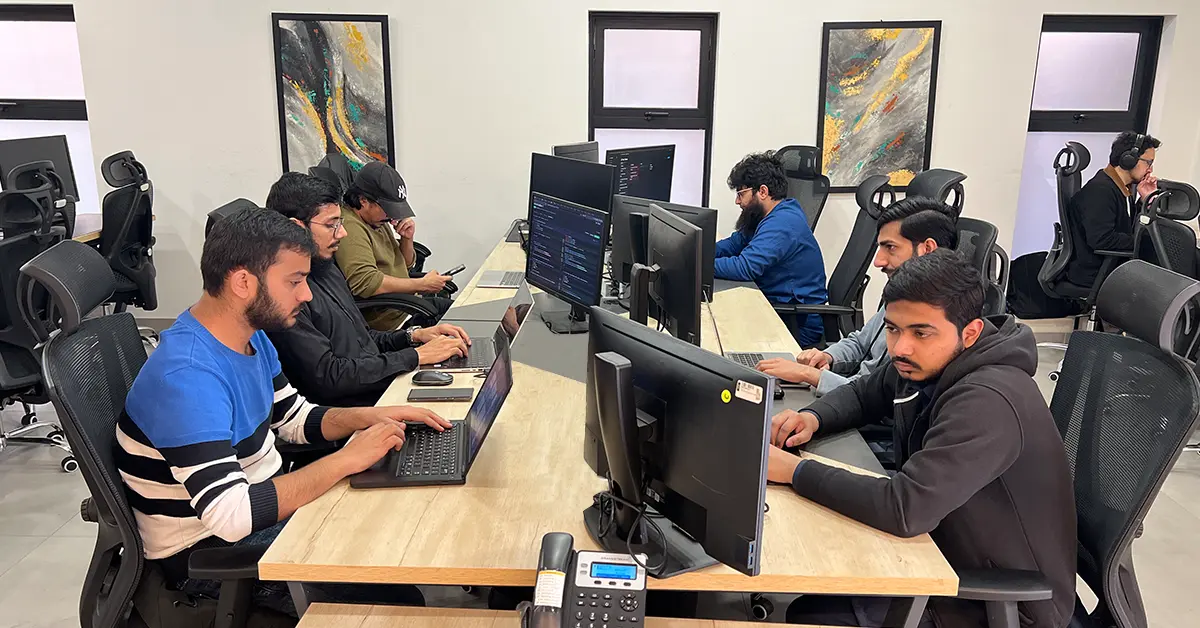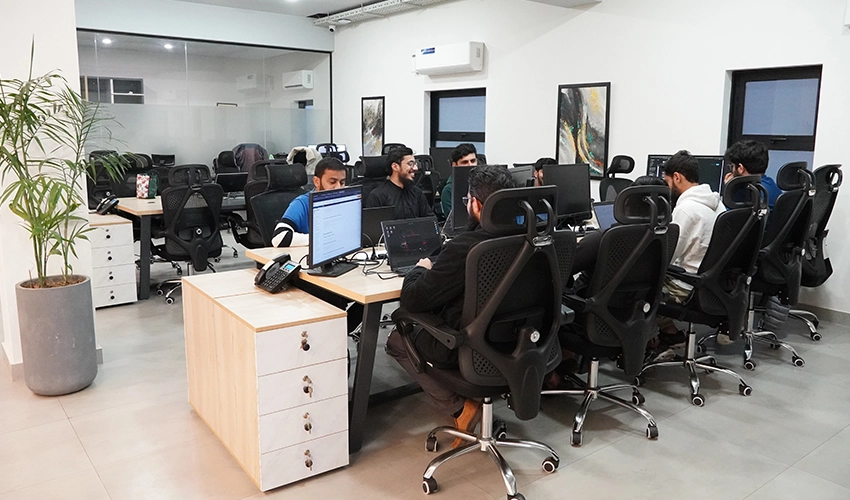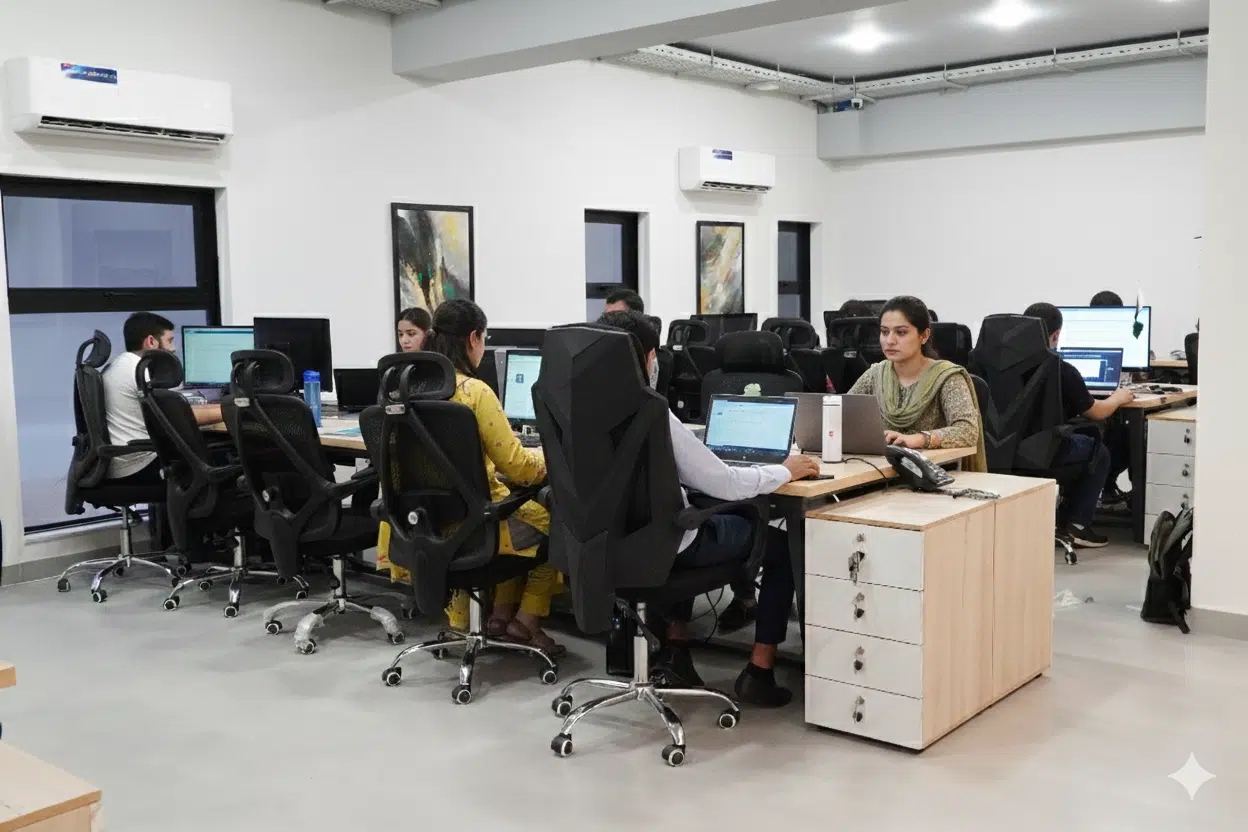Like the rest of the world, Pakistan’s workforce is transforming. The way people work and connect now evolves in a blink, and coworking spaces give the perfect vibe for that. New coworking hubs keep popping up in major cities of the country and provide a solution for people seeking an escape from working from home. Apart from offering freelancers a professional setup, coworking spaces are also becoming attractive for entrepreneurs and investors seeking scalable returns.
Let’s explore how coworking started in Pakistan, have a look at the current state of coworking, how it’s evolving, and why it looks promising for both professionals and investors in the years to come.
How Coworking Started in Pakistan?
The coworking industry in Pakistan has been booming over the last decade. Coworking started as a niche concept and has become one of the hottest markets right now. Although Kickstart is often crowned as the pioneer of coworking spaces in Pakistan, somebody else had already introduced them way before they did.
Faizan Laghari introduced the concept of coworking spaces to Pakistan in 2008 with his project, Suite 401. Unfortunately, this venture failed and closed in 2010 due to a lack of awareness and acceptance of the coworking culture back then. Later in 2014, the Punjab Information Technology Board (PITB) launched TechHub Connect, which became immensely successful and is now labeled as Pakistan’s first successful coworking space for freelancers.
Then, Kickstart went ahead and launched its coworking space in Lahore in 2016. It quickly gained momentum and became one of the most significant contributors to the coworking ecosystem we see in Pakistan today. Since then, coworking spaces have been promoting innovation and collaboration, helping startups grow while staying on a budget.
Suggested Read: Why Join a Coworking Space?
What Coworking Looks Like in Pakistan Today?
The coworking sector in Pakistan’s landscape appears more mature than ever before in 2026, particularly in major cities such as Lahore, Karachi, and Islamabad. Today, more than 200 coworking spaces are operational across the country, and they’re attracting freelancers, remote workers, and even medium-sized businesses. One such example is Workpod Premium Coworking, which is revolutionizing the coworking niche.
One of the main reasons behind this growth is the continuous spike in demand for workplaces that are cost-effective, secure, and comfortable. Unlike traditional office setups, coworking spaces today offer premium amenities, including high-speed internet, uninterrupted power backup, meeting rooms, dedicated support staff, and even on-site cafés or daycare services. The appeal of simply doing your work and leaving the operational worries to someone else is desirable, especially for businesses that have a lot more things to focus on.
What Freelancers and Remote Workers Should Expect from the Coworking Growth
Coworking provides a solution to the most significant pain points of working from home: distractions, lack of routine, isolation, and limited resources. Studies suggest that coworking environments significantly increase productivity and motivation. These shared spaces offer the structure of a traditional office without the rigidity that comes with it; such flexibility is a big win for anyone juggling multiple clients or working flexible hours.
What’s even more appealing is the control these users get over their workday. Coworking offers options tailored to the mood or needs of the day; people can work during the day or at night, depending on their preferences for that particular day. This is especially meaningful for women professionals in Pakistan, as they gain secure and inclusive working spaces with additional facilities like daycare, allowing them to work without worries.
Suggested Read: Why Freelancers Prefer Coworking Spaces
Additionally, as coworking spaces continue to expand, freelancers are bound to find an increase in new gigs, partnerships, or collaborators in these workplaces. This is extremely helpful for them, both in terms of their career and for expanding their network.
What Investors Should Expect from Pakistan’s Coworking Revolution?
Coworking in Pakistan is a growing industry that’s catching the attention of investors. With flexible work becoming the norm and office needs changing rapidly, coworking spaces have positioned themselves as the next big thing in commercial real estate.
Let’s explore why investors see this market booming in the coming years.
A High-Demand Model That Keeps Changing
We have already seen a major demand for coworking across Pakistan’s major cities, especially in Lahore, Karachi, and Islamabad. As more startups and freelancers find long-term leases inconvenient, they’re moving away from them while actively searching for flexible office solutions. This opens the door for investors to step in and invest in the spaces that fulfill the needs of the modern workforce.
Unlike traditional offices, coworking isn’t rigid. It keeps changing based on how people work. Modern workspaces are now being designed with features like smart zoning, event areas, wellness rooms, and even childcare. This gives investors the freedom to invest in a range of models, they can create minimalist hot desk hubs, or luxurious workspaces, and niche studios for creatives, whatever they find lucrative.
Reliable Returns Without Long-Term Lock-In
Compared to traditional commercial offices, coworking spaces offer a more dynamic revenue model. While lease-based offices may sit empty during downturns, coworking spaces can adjust their offerings in response to demand, including short-term passes, day rates, team packages, and even night-shift packages.
Investors are less dependent on long-term tenants and get a strong and active income stream. Operators can capitalize on seasonal shifts and maintain high occupancy of their spaces by offering flexible pricing, seasonal promotions, or on-demand meeting room rentals, all of which can contribute to overall profitability.
Tier-2 Cities: The Next Investment Frontier
While the bigger cities are saturated with coworking brands, the real opportunity lies in tier-2 and tier-3 cities. Remote work has spread far beyond urban centers, and professionals in smaller cities are now looking for affordable, professional environments without needing to relocate.
Cities like Faisalabad, Sialkot, and Multan have massive untapped potential. Investors getting in early will be shaping the coworking industry in these cities while enjoying lower real estate costs and first-mover advantages.
Diversification with Smart Real Estate
Coworking is now seen as a strategic part of a diversified real estate portfolio. Investors are combining coworking spaces with mixed-use developments—pairing offices with residential units, cafés, gyms, and retail. This model creates an ecosystem where one unit supports the other and maintains consistent foot traffic.
Additionally, properties that host coworking spaces often experience increased property value over time, as this has become one of the most sought-after amenities in the market.
Tech-Driven Growth Is Lowering Operational Risk
Coworking operators are now utilizing AI tools and space management software to reduce manual work, automate bookings, track energy usage, and forecast demand. Investors can employ such systems to get better cost control and make more data-driven decisions.
Plus, investing in a tech-enabled coworking space increases operational efficiency while also future-proofing the business. If someone wants to scale their business, a tech-driven one makes it ten times easier, helping investors replicate successful models in other cities using the same systems.
Coworking in 2030: Where Pakistan Is Headed
By 2030, coworking in Pakistan is expected to move far beyond the urban elite. Tier 2 and Tier 3 cities are emerging as growth hotspots. In the coming years, the demand for structured workspaces is expected to grow in cities such as Hyderabad, Faisalabad, Multan, Sialkot, and Peshawar.
Workspaces are expected to become multi-functional and will evolve to accommodate this, with more hybrid designs featuring wellness zones, podcast booths, meditation rooms, and rooftop lounges.
Read More: Why Is Coworking the Future?
Seeing the rapid growth of AI, it will most likely handle booking, scheduling, billing, and community-building through hyper-personalized algorithms. Plus, most coworking spaces will include tech-based amenities as standard features. Pakistan’s tech-savvy youth and growing freelance economy make it one of the most promising markets for coworking evolution in the region.
Barriers to Growth What’s Holding Coworking Back?
While the potential is strong, coworking in Pakistan does face hurdles.
First is the lack of consistent government support. Unlike tech zones or export parks, coworking operators typically do not benefit from tax breaks or regulatory incentives. If properly recognized, these spaces could support job creation, women’s employment, and IT exports.
Then come infrastructure challenges. Outside of major cities, consistent internet and electricity remain major issues today. Even within metro areas, inflation and currency instability impact operating costs and pricing flexibility, making it challenging to maintain a coworking space at a decent rate.
Finally, there’s the saturation risk. As more operators enter the space without differentiation, some areas (especially in Lahore and Karachi) may see overcrowding or underutilization, which may impact profit margins and make it a real struggle for coworking spaces to attract and retain long-term members.
Addressing these challenges early will enable coworking to grow in a healthy and scalable manner that benefits all stakeholders across Pakistan.
Work Smarter with the Smartest Coworking Space in Town
WorkPod truly understands the requirements of modern professionals. Our spaces are designed to help you work and grow in a supportive and well-equipped environment. With premium amenities, reliable infrastructure, and a happy and thriving community, WorkPod is making the future of work accessible today.
Ready to make the switch? Visit WorkPod Premium Coworking Space and experience a better way to work.
Contact us now to book your tour or learn more about our membership plans.








